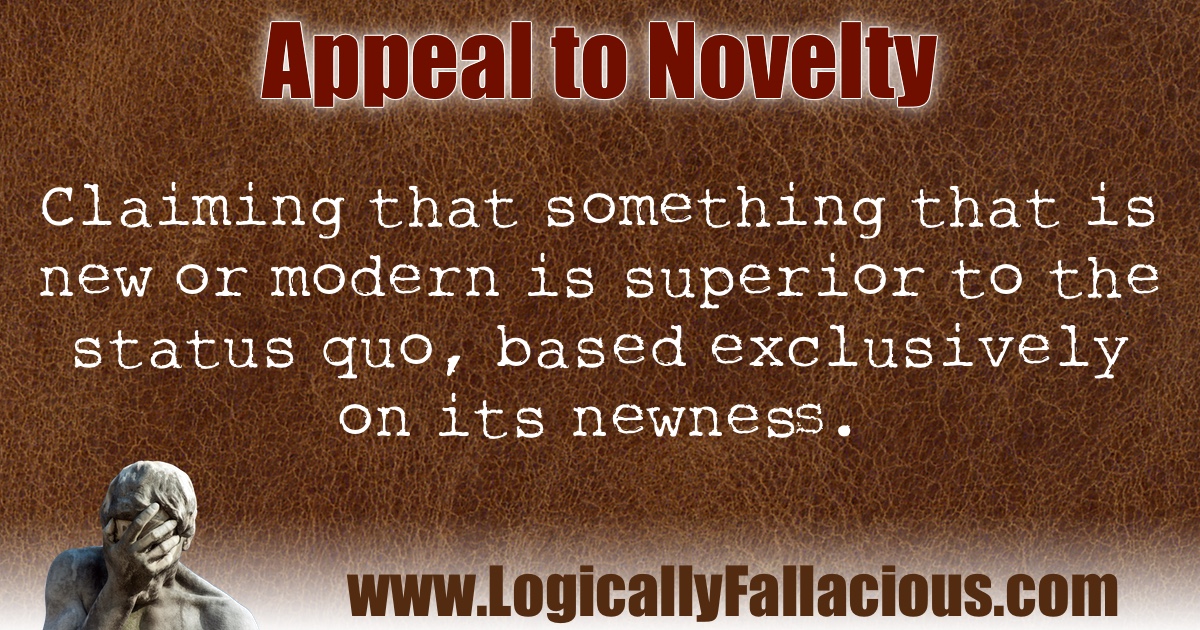argumentum ad novitatem
(also known as: appeal to the new, ad novitam [sometimes spelled as])
Description: Claiming that something that is new or modern is superior to the status quo, based exclusively on its newness.
Logical Form:
X has been around for years now.
Y is new.
Therefore, Y is better than X.
Example #1: Two words: New Coke.
Explanation: Those who lived through the Coca-Cola identity crises of the mid-eighties know what a mess it was for the company. In fact, the “New Coke Disaster”, as it is commonly referred to, is literally a textbook example of attempting to fix what isn’t broken. Coke’s main marketing ploy was appealing to the novelty, and it failed miserably -- even though more people (55%) actually preferred the taste of New Coke, the old was “better”.
Example #2:
Bill: Hey, did you hear we have a new operating system out now? It is better than anything else out there because we just released it!
Steve: What’s it called?
Bill: Windows Vista!
Steve: Sounds wonderful! I can’t wait until all of your users install it on all their computers!
Explanation: For anyone who went through the experience of Vista, this fallacy should hit very close to home. You were most likely assuming that you were getting a superior product to your old operating system -- you were thinking “upgrade” when, in fact, those who stuck with the status quo (Windows XP) were much better off.
Exception: There are obvious exceptions, like in claiming that your fresh milk is better than your month old milk that is now growing legs in your refrigerator.
Tip: Diets and exercise programs/gadgets are notorious for preying on our desire for novelty. Don’t be swayed by the “latest research” or latest fads. Just remember this: burn more calories than you take in, and you will lose weight.
